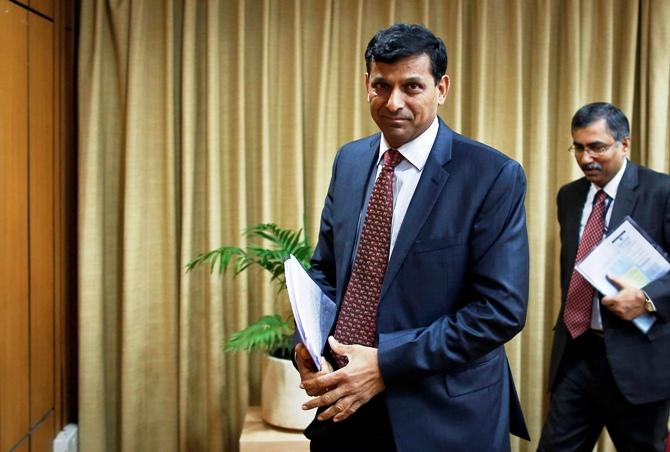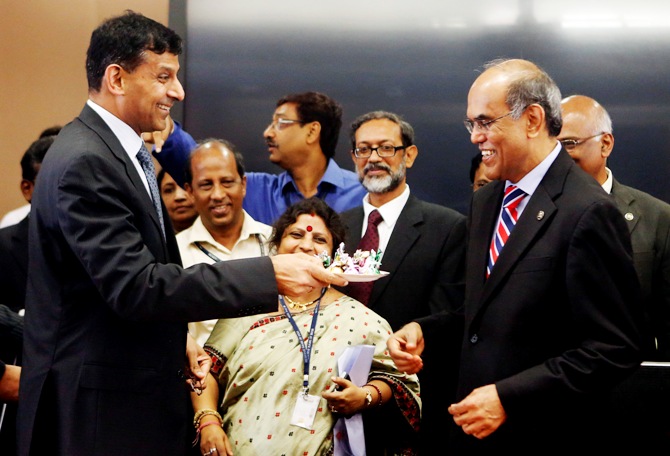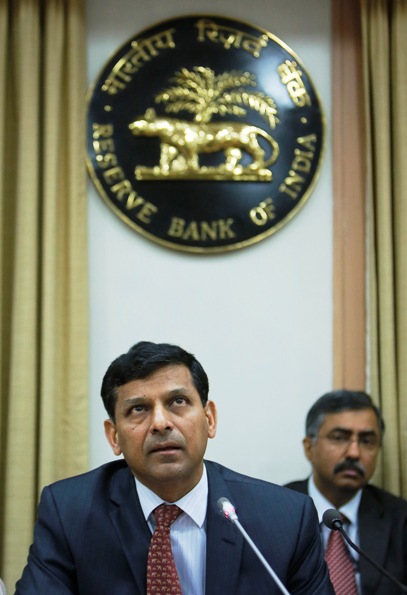 | « Back to article | Print this article |
Why Moody's prefers Rajan to Subbarao
The research arm of New York-headquartered Moody’s was critical of Reserve Bank of India’s monetary policies in the past three years, though it did not directly take the name of previous governor D Subbarao.
“Indian monetary policy over the past three years has been at best ineffective and at worst counterproductive, but this is changing under the new central bank head,” said Moody’s.
Rajan was appointed RBI governor in the first week of September.
He has clearly stated he’s taking an anti-inflationary stance.
“Governor Raghuram Rajan has made lower inflation the bank’s primary goal, meaning further rate hikes are likely in the near term,” said the firm.
Click NEXT to read further. . .
Why Moody's prefers Rajan to Subbarao
While addressing a seminar recently in Kolkata, Rajan had said the central bank ‘intends to try and bring inflation under control’.
After taking control as governor, he has raised the repo rate (at which banks borrow for the short term from RBI) twice by 25 basis points and is expected to do so again in the review due on Wednesday.
On economic growth, Moody's Analytics said there were less chances of a recovery in 2014.
"India’s 2013 economic performance has been disappointing and little on the horizon is likely to lift growth," it said.
India's economy grew below five per cent in the first nine months of 2013.
The research agency also said it expected less financial volatality in 2014.
Click NEXT to read further. . .
Why Moody's prefers Rajan to Subbarao
It attributed this to the expectedly lower current account deficit this year, “which should mute the impact of (the US) Fed policy on the rupee".
All eyes are on the US Federal Reserve's decision on tapering its quantitative easing programme, which might hit capital inflows to the emerging market economies, including India.
Keeping all hopes on a ‘reform-minded’ government in next year’s Lok Sabha elections, Moody’s raised issues such as complicated tax regulations, weak infrastructure and a weak central government.
"This will turn around eventually but not in 2014. . .The May elections open the possibility of better governance," it opined.



